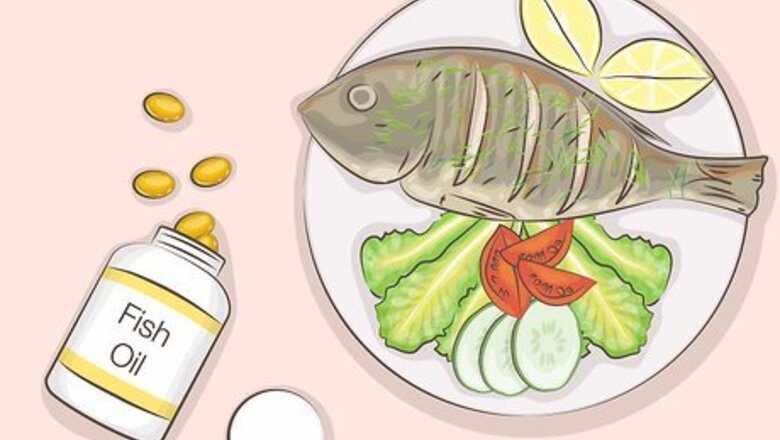
views
Eating Healthy for a Healthy Mind
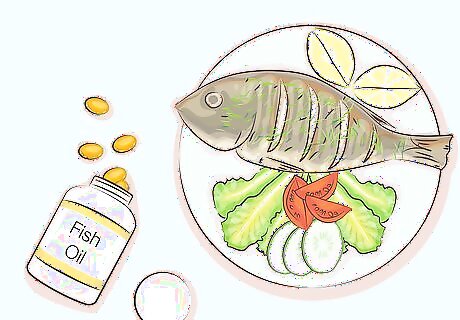
Eat fish and take fish oil supplements. Fish is a great source of omega-3 fatty acids, selenium, vitamins A and D, phosphorous, magnesium, and iodine (if saltwater), many of which are important for brain health. Fish oil is the richest source of fat vital to brain development in unborn babies and infants, and it helps maintain the brain throughout life. Eat about 14 ounces of fish a week or three servings that are about the size of your fist. Fish oil is available in food supplements. You can find it fortified with DHA, as well. It is also sold as Omega 3 Oil in its own separate supplements. This is especially important for continued brain and cardiovascular health
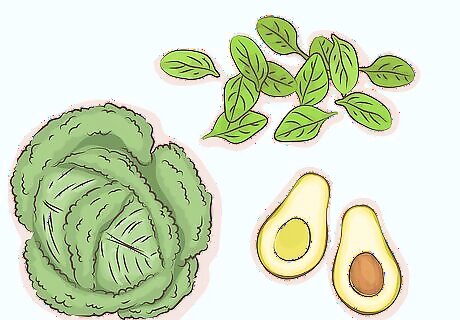
Eat your greens. Dark, leafy greens such as kale and spinach are essential for a healthy mind and body. These contain high levels of vitamin E and folate. Vitamin E likely helps protect your brain's neurons, while the relationship between folate and brain health isn't as clear. It's likely that it helps keep down levels of homocysteine in the brain, as this amino acid may lead to nerve cell death if the levels are too high. You can also try avocado for a good source of vitamin E, as well as sunflower seeds.
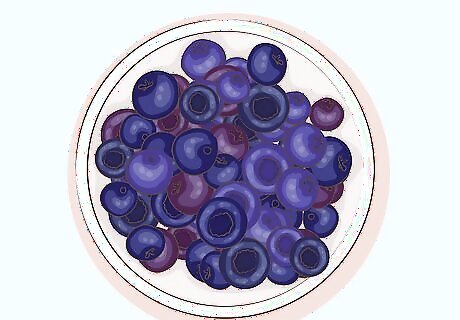
Dose yourself with blueberries. Blueberries have been shown to help with short term memory loss in some studies, so eat them a few times a week. Other berries have brain-boosting benefits, too, such as strawberries and acai berries.
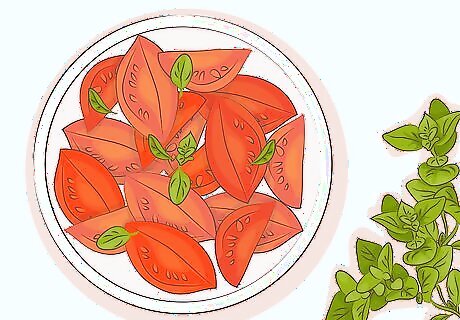
Make a tomato salad. Tomatoes, which can contain high levels of lycopene, help protect against free radical cell damage, which in turn, may help protect against dementia.
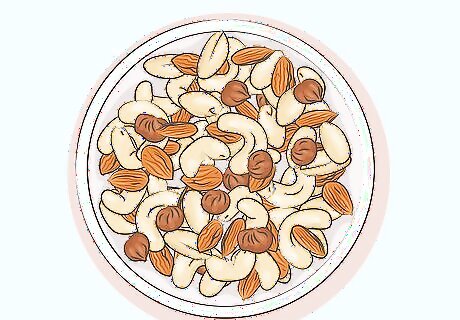
Add nuts to your diet. Nuts contain alpha linolenic acid (ALA), and they have anti-inflammatory properties. These qualities help increase blood flow, which makes your brain happy with more oxygen. They are also high in vitamin E.
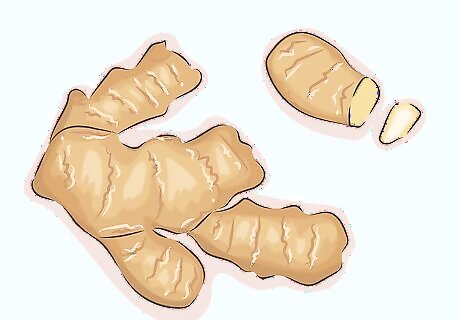
Eat ginger. Ginger, along with other foods such as berries, soy products, and teas, help protect your glial cells. These cells likely remove toxins from the brain, protecting you from diseases such as Alzheimer's. Try ginger tea, or add ginger to a stir fry for extra spice.
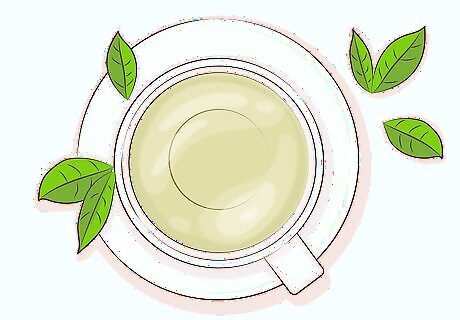
Drink green tea. The theanine(an amino acid) in green tea may help to improve memory and attention span. Drink one to three cups of green tea daily.
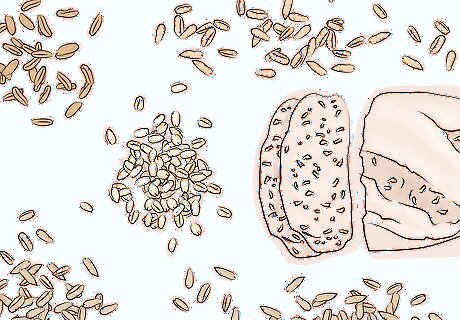
Incorporate whole grains. Whole grains are a part of an overall healthy diet that will improve your general health. The healthier your body is, the healthier your brain is. They can also help lower your risk for high blood pressure, which keeps your brain healthier. If you're over age 9, you should be getting at least 3 to 5 servings of whole grains per day, up to 6 or 7 servings as an adult. To get your servings in, try oatmeal, whole wheat bread, quinoa, brown rice, or whole wheat pasta.
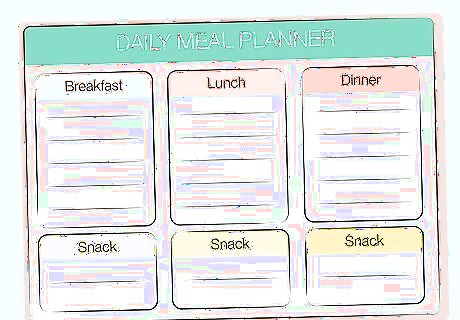
Spread your food across the day. Eating small meals throughout the day, as opposed to one large meal, can help with brain health. It keeps your blood sugar level throughout the day, providing the energy your brain needs. Try four to six meals instead of three to five.
Focusing on the Nutritional Value of Your Food
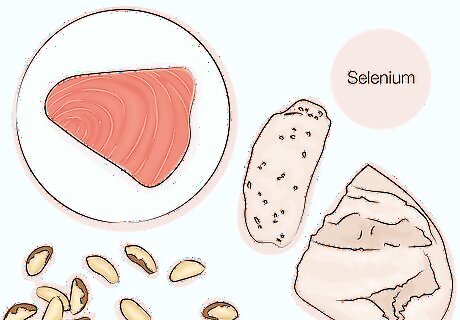
Eat selenium-rich foods. Selenium is a trace mineral that has an essential role in ensuring good brain health, particularly as an antioxidant. Studies have found that depleted levels of selenium result in poor memory, bad moods, and decreased cognitive function, while increasing selenium improves mood, clarity of thinking, and energy levels. You need to get at least 55 micrograms daily. Try foods such as whole grain bread, tuna, and Brazil nuts.
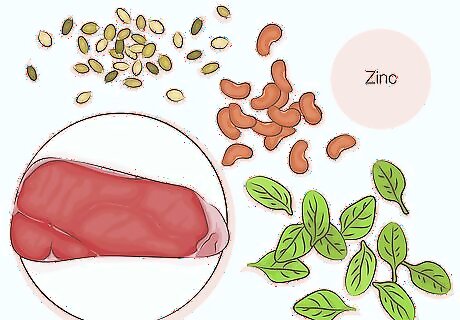
Increase your zinc. One great source of zinc is pumpkin seeds. Zinc is helpful for improving brain power, and just a 1/4 cup provides almost 20 percent of your daily value. Other good sources include spinach, beef, and kidney beans. Try eating a small handful of pumpkin seeds as an afternoon snack, or sprinkle them over salad or oatmeal for added texture.
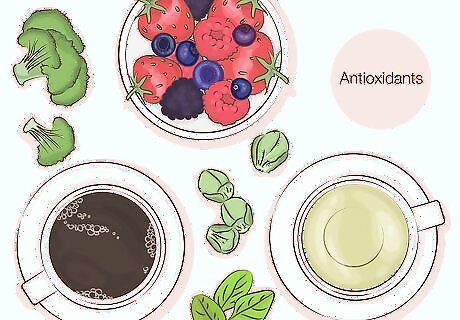
Consume foods rich in antioxidants. Many of the foods already listed here are high in antioxidants, such as berries and leafy greens. However, certain drinks are high in antioxidants, too, including tea and coffee. Green tea is particularly beneficial for the brain. Try drinking a cup of tea or two a day. Antioxidants help block free radicals, which can destroy brain cells over time.
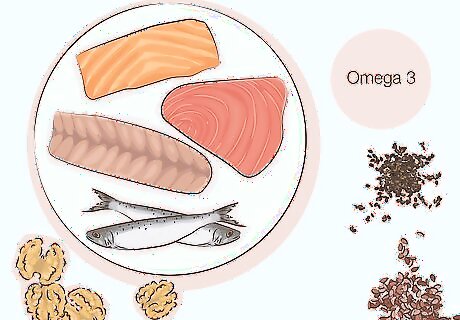
Improve your omega-3 intake. Omega 3 is excellent brain food, providing a good source of EPA and DHA fatty acids and helping to protect your brain from deterioration. Not getting enough of these fatty acids in your diet can increase your chances of getting Alzheimer's or dementia. Oily fish (e.g., salmon, sardines, herring, tuna), fish oil, walnuts, and flax seeds (linseed) are all good sources of omega-3. Try chia seeds, which are loaded with ALA and EHA omega-3. They are easy to sprinkle over everything from cereal to salads, as they are flavorless.
Taking Supplements
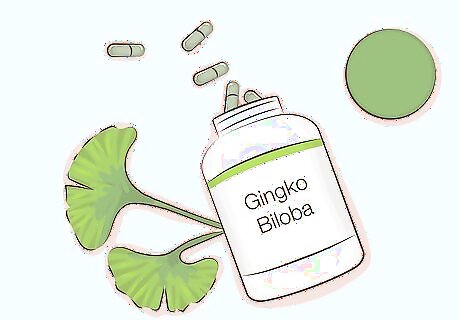
Try gingko biloba. Studies are showing that gingko biloba can help with certain brain disorders, such as cerebral inefficiency and dementia. It is also helpful for fighting memory loss. Before beginning this supplement ensure it has no interactions with any current medications. The dosages varied by study, anywhere from 120 milligrams to 640 milligrams per day. Talk to your doctor about an appropriate amount for you.
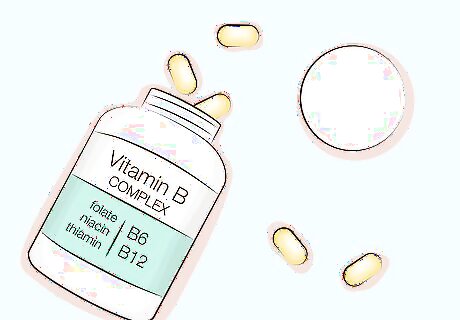
Take B-vitamins. These vitamins help your body create fuel from glucose. They're also essential in helping protect against dementia. If you aren't getting enough B-vitamins from your diet, find a supplement that includes folate, B6 and B12, niacin, and thiamin.
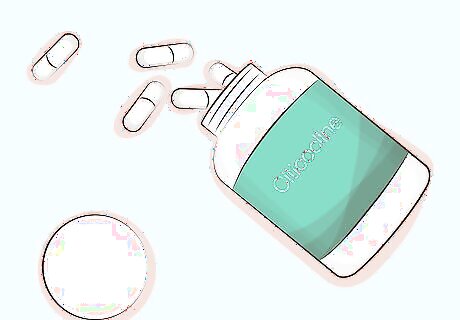
Supplement with citicocline. This supplement can help with memory function and recall, as well as help those with declining mental abilities. It is a chemical already present in your brain, and you can take up to 1,000 milligrams per day.
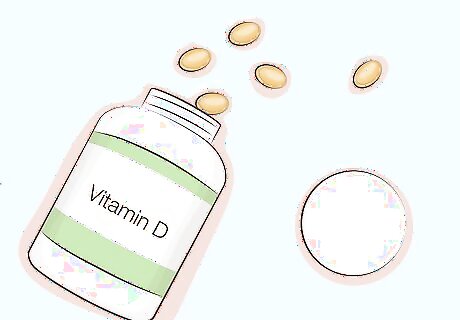
Try Vitamin D. Being low on vitamin D can lead to disorders such as seasonal affective disorder and depression. People can usually get most of the vitamin D they need through sunlight, but some people's bodies - especially dark-skinned people and the elderly - can have trouble converting sunlight to vitamin D, and in the winter, it can be difficult for anyone to get enough sun. Research has been done on dosages anywhere from 528 to 9,000 international units of vitamin D2 or D3. Check with your doctor for an appropriate dosage for you.




















Comments
0 comment